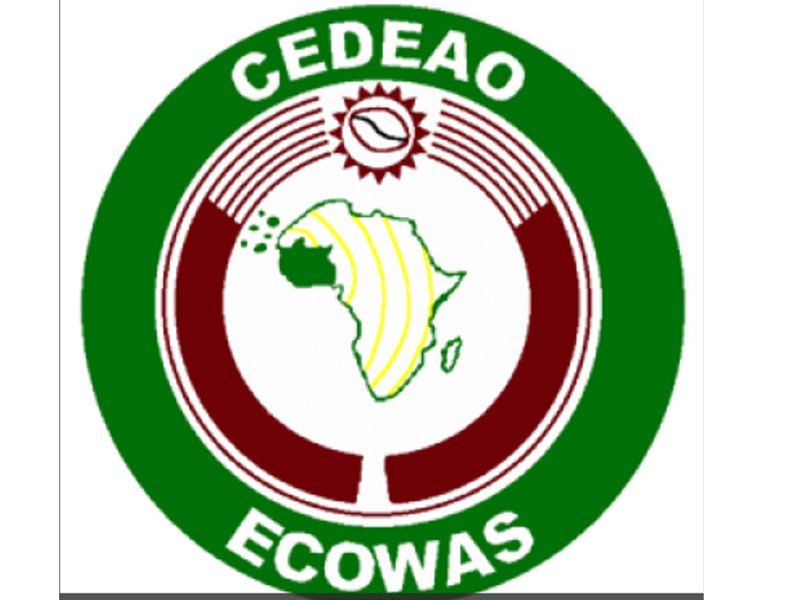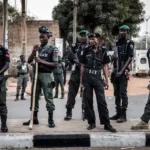The Niger military junta, incensed by ECOWAS obsession with their country in the face of similar coup d’états across what has now become West Africa’s coup belt – Guinea, Burkina Faso and Mali – has reportedly threatened to assassinate President Mohamed Bazoum if the West African regional bloc went ahead with its threat to invade the country and restore Bazoum to power.
The threat to kill Bazoum – or the most recent one by the junta to charge him with high treason – although not totally unexpected, complicates the situation and demands that ECOWAS approaches the Niger coup issue with much introspection and circumspection.
First, it is important that President Tinubu has emphasised dialogue and engagement with the junta even as ECOWAS has kept the military option as a measure of last resort to restore constitutional order in Niger.
Since the military take-over in that country a little over two weeks ago, there’s been a surfeit of commentary seeking to contextualise the military putsch in Niamey within the broader socio-political, economic and cultural contexts in West Africa.
- Brace up for post-election activities, Ganduje tells APC supporters
- Drivers, travellers plying the dangerous ‘Kaduna-Birnin Gwari Highway narrate ordeals
The abhorrence ECOWAS has shown to the coup in Niger is justified. But not so is its threat of military action. ECOWAS is demonstrably an economic union, not a military alliance.
The West African economic bloc can impose sanctions – as it already has – and can tighten the noose around the junta, effectively disabling their capacity to govern Niger Republic in a credible and respectable way. Over the long term, the junta will be pressed hard enough to come to the negotiating table. This is because at that point, the junta had no option other than to seek a middle ground through which the suffering of the Nigerien people occasioned by border closures, bank seizures, and other expressions of economic pressure can be ameliorated.
At the moment, though, a great number of the people of Niger appear to support the junta. They may dislike military rule as a matter of choice. But when they feel that their country is being threatened and they have a sense of harmful French and foreign interference in their country’s internal affairs, the nationalist instinct will surely kick in.
I believe that after the dust settles, the people of Niger themselves will begin to ask the questions that the junta must provide answers for. Is the military takeover worth all the trouble? Is there truth in the rationale advanced by the junta that the Bazoum administration has failed to rein in insurgents operating along the vast swathe of territory between Niger and Mali? The Nigerien people would also seek to put in context the security rationale relied on by the junta in staging the coup against report that in 2022, Niger, under Bazoum, was the most successful in tackling the so-called Islamist insurgency in the Sahel.
Already, within Niger’s general population and, particularly the civil society, there’s been a lot of soul-searching, as people come to terms with the new reality in their country – with hundreds of thousands of people being unable to access basic services that were hitherto a given along their border with Nigeria. Given everything that we know so far about the effects of ECOWAS sanctions on their country, it’s only a matter of time before the people of Niger begin to express themselves in ways that the junta would be hard-pressed to resist.
The people of Niger also know that the assassination of Bazoum that the Tchiani-led junta has reportedly threatened, should that happen, will plunge their country, already enmeshed in numerous socio-economic and political crises, into a civil war. A civil war in Niger will likely destabilise the entire West African sub-region and give terrorists and insurgents the chutzpah to continue to engage in condemnable terrorist activity. A civil war in Niger is the last thing anyone would wish to happen in our country’s northern neighbour.
Given the complexity of the situation, therefore, President Tinubu – and indeed ECOWAS as a whole – should hearken to the voices of moderation and caution that so far have the most sway. The threat to use military force should be taken off the table. This will likely make the junta come faster to the negotiating table.
The mediation of some Islamic clerics from Nigeria who, a few days ago, met with the junta in Niamey has already softened the ground. And since the Tchiani-led junta has agreed in principle to a talk with ECOWAS officials, the West African economic bloc should mediate and chaperon the situation in a way that will ensure President Bazoum’s safety, and ensure that the Niger military junta can roll out a roadmap for a return to constitutional democracy.
Anything other than a methodical, measured approach to the situation in Niger would have consequences beyond our wildest imagination. An ECOWAS war with Niger Republic will affect Nigeria – and particularly Northern Nigeria – in ways we can scarcely imagine. There be will be an influx of refugees from Niger’s border towns. This will complicate the effort of governors whose states border Niger Republic to provide for their people at this time of heart-wrenching economic difficulties. It will also complicate, and possibly torpedo, what effort President Tinubu is currently making to find some direction for the nation’s economy.
That said, the coup in Niger, along with those in Burkina Faso, Guinea and Mali should also give ECOWAS a pause.
In all the four countries that have so far experienced military takeovers in the recent period, Niger Republic inclusive, there seem to be widespread economic challenges that have kept people really on edge. Those concerns, of course, cannot possibly justify military takeovers since the work of socio-economic development has always been a work in progress. But ECOWAS has to learn a thing or two from the happenings within its borders.
Can a new economic blueprint, one that collectively addresses multidimensional poverty and ignorance across West Africa and makes people feel the real impact of government be the a potent weapon that ECOWAS can use as it seeks to re-assert itself in the region? Can ECOWAS navigate this moment in ways that ensure a much closer integration and economic partnerships across the West African sub-region over the long term? These are some of the issues that ECOWAS has to address in these times of raging uncertainty across the region.
For now, though, ECOWAS Vs. Niger seems far from over. It can get even worse. President Tinubu, as ECOWAS chair, has to continue the long and difficult but ultimately necessary work to diffuse the tensions.
Abdullahi Bego writes from Red Bricks Estate, Damaturu Yobe State

 Join Daily Trust WhatsApp Community For Quick Access To News and Happenings Around You.
Join Daily Trust WhatsApp Community For Quick Access To News and Happenings Around You.


